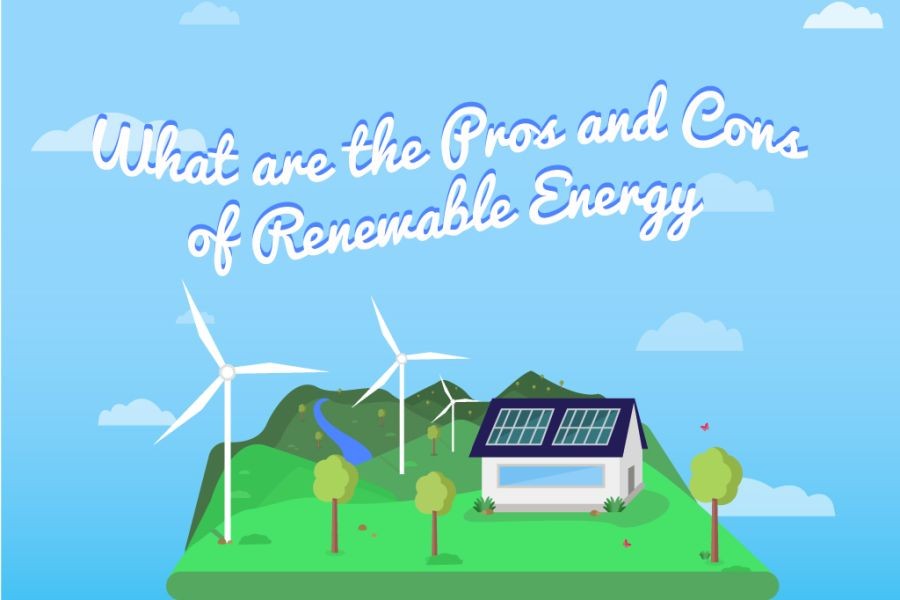New Zealand stands at a pivotal juncture in its energy transition journey. With its abundant natural resources, the nation is poised to revolutionize its economy through renewable energy. But how exactly will this shift impact New Zealand's economy over the next decade? By examining historical trends, current data, and future projections, we uncover the transformative potential of renewable energy and its implications for the Kiwi economy.
The Historical Evolution of Renewable Energy in New Zealand
New Zealand's commitment to renewable energy is not a recent development. Historically, the nation has leveraged its geothermal resources and hydroelectric power to meet a significant portion of its energy needs. In 2020, 82% of New Zealand's electricity was generated from renewable sources, according to the Ministry of Business, Innovation & Employment (MBIE). This commitment has set the stage for further advancements in wind, solar, and biomass energy.
Case Study: Trustpower's Wind Farm Initiative
Trustpower, one of New Zealand's leading electricity generators, has been a pioneer in the wind energy sector. To address the increasing demand for sustainable energy, Trustpower launched the Mahinerangi Wind Farm project.
Problem: Trustpower aimed to reduce reliance on non-renewable energy sources and mitigate carbon emissions.
Action: The Mahinerangi Wind Farm was developed in two stages, with the first stage completed in 2011. The project focused on utilizing advanced wind turbine technology to maximize energy output efficiently.
Result: The wind farm now generates enough electricity to power around 25,000 homes annually. The successful implementation has significantly contributed to New Zealand's renewable energy targets.
Takeaway: Trustpower's initiative underscores the potential of wind energy in reducing carbon emissions and enhancing energy security. New Zealand businesses can draw inspiration from this model to invest in innovative energy solutions.
Data-Driven Insights: Economic Impact of Renewable Energy
Renewable energy is not only a solution for environmental sustainability but also a driver of economic growth. According to Stats NZ, the renewable energy sector contributed approximately NZD 3.5 billion to New Zealand's GDP in 2022. This figure is projected to increase as the nation accelerates its transition to a low-carbon economy.
Moreover, the employment potential within the renewable sector is significant. The International Renewable Energy Agency (IRENA) predicts that by 2030, renewable energy could create over 10,000 new jobs in New Zealand, spanning manufacturing, installation, and maintenance of renewable technologies.
Pros vs. Cons of Renewable Energy Investment
Pros:
- Economic Growth: Investments in renewable energy stimulate local economies by creating jobs and attracting investment.
- Energy Independence: Reducing reliance on imported fossil fuels enhances national energy security.
- Environmental Benefits: Decreased carbon emissions contribute to global climate change mitigation efforts.
- Innovation and Technology Advancement: Drives technological innovation, leading to more efficient energy solutions.
Cons:
- High Initial Costs: Renewable energy projects require significant upfront investment, which can be a barrier for smaller businesses.
- Intermittency Issues: Technologies like wind and solar are dependent on weather conditions, affecting reliability.
- Regulatory Challenges: Navigating complex regulatory environments can delay project implementation.
Real-World Case Study: Meridian Energy's Solar Initiative
Meridian Energy, another key player in New Zealand's energy landscape, has embarked on ambitious solar projects to harness the power of the sun.
Problem: Meridian aimed to diversify its energy portfolio and reduce environmental impact.
Action: The company invested in solar farms across the nation, implementing cutting-edge solar panel technology to maximize efficiency.
Result: Meridian's solar projects now contribute significantly to the national grid, powering thousands of homes while reducing carbon footprint.
Takeaway: Meridian's success highlights the viability of solar energy as a sustainable and scalable energy solution. Businesses can adopt similar approaches to enhance their environmental credentials.
Common Myths About Renewable Energy in New Zealand
Myth: "Renewable energy is too expensive for widespread adoption."
Reality: The cost of renewable energy technologies has decreased significantly, with solar and wind now being some of the most cost-effective sources of energy (Source: MBIE).
Myth: "Renewable energy cannot meet all our energy needs."
Reality: With advances in energy storage and grid management technologies, renewables can provide a reliable and sustainable energy supply (Source: University of Auckland).
Myth: "Renewable energy projects take too long to implement."
Reality: Streamlined regulatory processes and technological advancements have reduced project timelines significantly (Source: NZ Energy Efficiency and Conservation Authority).
Future Trends & Predictions
The future of renewable energy in New Zealand looks promising. By 2030, it's projected that 90% of New Zealand's electricity will be generated from renewable sources, according to MBIE. This transition will not only bolster the economy but also position New Zealand as a leader in global sustainability efforts.
Emerging technologies such as green hydrogen and energy storage solutions are expected to play pivotal roles in achieving these targets. The government's continued support through policies and incentives will further accelerate the adoption of renewable technologies.
Conclusion
New Zealand's renewable energy sector is set to transform the nation's economy, offering significant environmental and economic benefits. By embracing innovative solutions and technologies, businesses can capitalize on this transition. The journey ahead promises growth, sustainability, and resilience.
As New Zealand continues to lead in renewable energy adoption, what's your take on the potential economic impact? Share your insights below!
People Also Ask
- How does renewable energy impact New Zealand's economy? Renewable energy contributes significantly to New Zealand's GDP, creating jobs and reducing reliance on imported fuels, thus enhancing energy security.
- What are the biggest misconceptions about renewable energy in New Zealand? A common myth is that renewable energy is too expensive; however, costs have significantly decreased, making it a cost-effective solution.
- What are the best strategies for implementing renewable energy? Experts recommend starting with comprehensive feasibility studies, leveraging government incentives, and investing in advanced technologies for long-term success.
Related Search Queries
- Renewable energy in New Zealand
- Impact of renewable energy on NZ economy
- Solar energy projects in New Zealand
- Wind energy in NZ
- Green hydrogen in New Zealand
- Future of renewable energy in NZ
- Economic benefits of renewable energy
- New Zealand energy policies
- Renewable energy jobs in NZ
- Environmental impact of renewable energy in New Zealand































